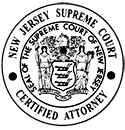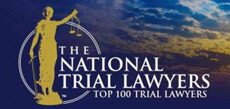A former attorney who experiences severe memory loss after suffering a stroke at work has settled his lawsuit for $20 million.
The agreement came about three weeks into a medical-malpractice trial against Cadence Health — which has since merged with Northwestern Memorial HealthCare. Christopher Zinski and his wife Patricia filed the suit in 2013, alleging emergency room physicians failed to identify and treat bleeding in Zinski’s brain, causing him to suffer a stroke two days later.
Zinski, formerly a partner at Schiff Hardin LLP, visited Central DuPage Hospital late on a Saturday night in September 2012 complaining of a headache, a painful and stiff neck, disorientation and vomiting.
Kevin G. Burke, a partner at Burke Wise Morrissey & Kaveny LLC who represented the Zinskis, said Christopher was initially seen by a physician assistant who knew the family, and that was the first problem.
“You just don’t want to tell a friend bad news. He took all those complaints and he said, ‘You know, it was a hot day today. It was 82 degrees; maybe you’re just dehydrated. We’ll give you some pain medication and some fluids,’” Burke said. “What he should have said is, ‘Is there any reason why not to give a CT scan to this man?’”
Zinski was not admitted to the hospital that night but instead, after being discharged, spent a quiet Sunday at home before returning to work that following Monday, said Jay Williams, a partner at Schiff Hardin who also represented the plaintiffs.
“That was the window of opportunity,” Burke said. “That was the window to get him the treatment he needed.”
Toward the end of the work day, Williams said, Zinski’s secretary heard alarming sounds coming from his office and found him slumped in his chair. Zinski’s heart had stopped two times before an ambulance could transport him to Rush University Medical Center, Williams said.
Once at Rush, Williams said physicians determined Zinski was suffering from a subarachnoid hemorrhage — bleeding in the space between the brain and the tissue that covers it.
And the symptoms Zinski presented at CDH the weekend before were those of what Burke and Williams said is generally called a “warning leak” that can alert physicians to such a condition.
“The leak was on Saturday, and it blew,” Williams said. “It was as bad as it can be — the highest scale. Most people do not survive this kind of bleed.”
Williams said Zinski’s Rush physicians worked to treat the condition by draining blood from his brain and performing a procedure in which they inserted small coils into his brain through a catheter to stop the bleeding.
It could have been correctly diagnosed days earlier with a CT scan and lumbar puncture, he said, before further damage occurred.
“That’s the point,” Williams said. “That same procedure could have been done between the sentinel bleed and the massive bleed with a very, very strong likelihood of a positive outcome, including being my partner today,” he said.
Zinski now lives with severe short-term memory loss as a result of the incident. He can generally remember things from his past but does not have the ability to acquire and store new information, Williams said.
“He lives in a very narrow window of the rolling present,” Williams said. “He can watch a two-hour movie and won’t remember it five minutes later. He doesn’t really look forward to things because that requires memory, and he can’t look back on things because that requires memory.”
Zinski also requires around-the-clock care to ensure he doesn’t injure himself around the house or get lost outside the home by turning down an unfamiliar road, Williams said.
Williams said he agreed to bring the lawsuit after Zinski’s family asked him to handle it, but he knew he’d need to join forces with other counsel on the case considering Schiff Hardin’s client base.
“It’s very unusual for a large corporate defense firm like Schiff to bring a medical-malpractice case, so we tried to find the best med-mal lawyer we could in the city, and we determined that was Kevin Burke,” he said.
In denying the plaintiffs’ allegations, the hospital alleged it met the standard of care by ruling Zinski’s condition out based on his ER presentations. Beyond contending that a CT scan might not have caught his bleeding, the hospital also argued Zinski did not present “classic” symptoms of such brain bleeding.
But Burke contended such classic symptoms are hardly universal across stroke victims.
“There’s another 20 percent where they just give the minor warning leak like Zinski,” he said.
John M. Fitzpatrick, a partner at Wheeler Trigg O’Donnell LLP in Denver who represented the hospital, could not be reached for comment.
Williams said the parties did not engage in any settlement negotiations ahead of the trial before Circuit Judge Thomas V. Lyons II that began Oct. 28.
The parties reached the settlement after discussing the case with Lyons.
Burke said the trial had reached the point where it was the defense’s turn to present experts, but he thought it was clear the hospital felt that “they didn’t have any good days ahead of them.”
“We had a lot to attack (the experts) on, and they knew it, so it wasn’t going to get any better for them,” he said.
Williams said the Zinskis can get a sense of closure from settling their case, which is an important part of what makes it a good thing.
“No amount of money — not $20 million, not $50 million, not $100 million — is ever going to do anything thing that matters to Chris because that loss is immeasurable and undoable,” he said.
The settlement will also allow the family to seek whatever kind of therapy possible that might help improve his quality of life, Burke said.
Burke said reaching such a result on the Zinskis’ case puts a positive end to what was an effective yet somewhat unorthodox arrangement from the start of litigation to its end.
“They represent corporate clients, and they took a stand,” he said. “Schiff standing up behind their lawyer, Schiff giving us one of their best trial lawyers to try the case, Schiff supporting the Zinski family and Schiff combining with a small law firm was exceptional.”
Lyons entered an order Monday that dismissed the case’s named physician defendants without prejudice.
http://www.chicagolawbulletin.com/archives/2016/11/22/20m-stroke-settlement-11-22-16



